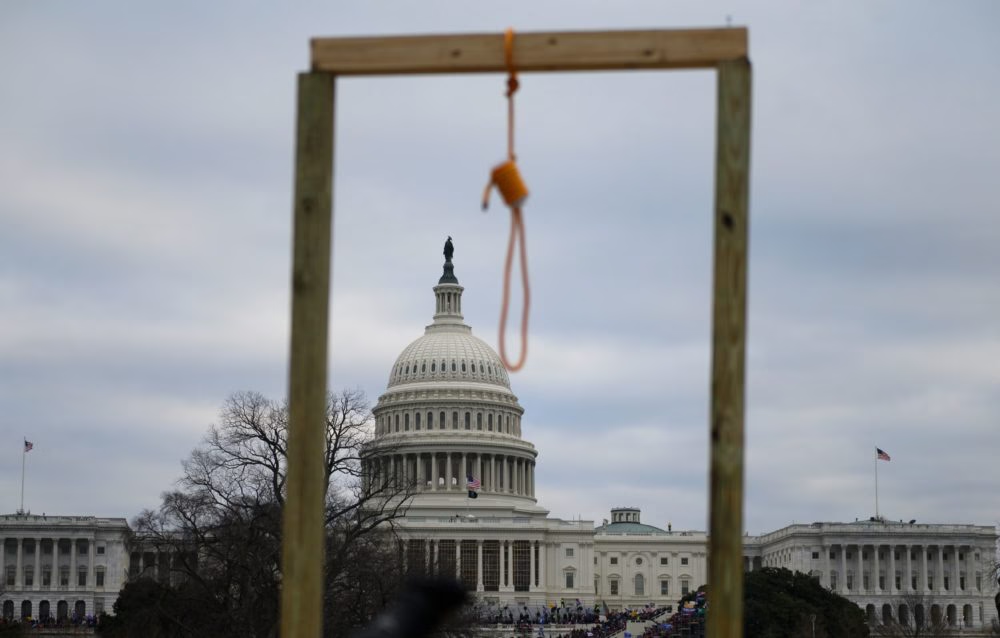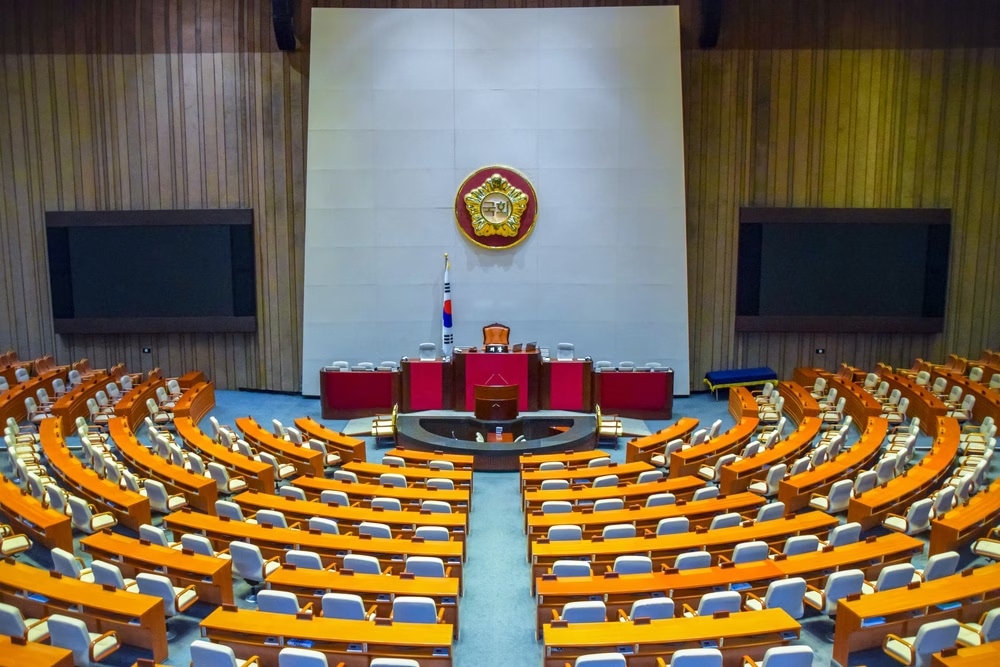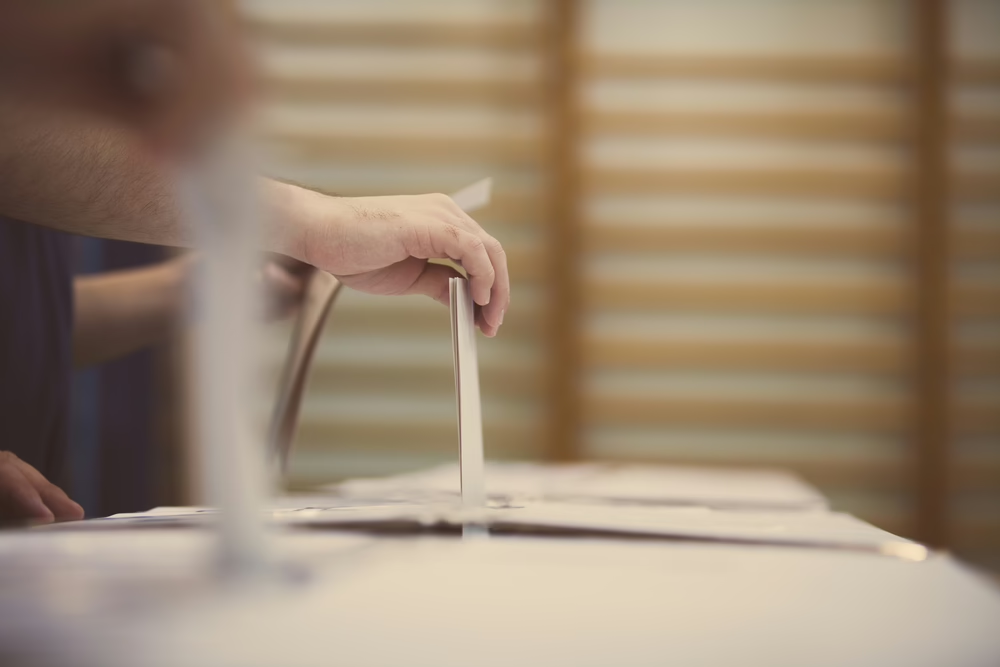On January 5th, 2021, the lawyer John Eastman sat down with Vice President Mike Pence and explained his plan to overturn the results of the 2020 presidential election.
The next day, Pence would be in the Senate to certify the results of the Electoral College. As the states submitted their tallies alphabetically, Eastman told Pence to skip the certification of Arizona, “the first break with procedure.” Pence would declare that in seven states, the election results were disputed and thus the Electoral College votes could not be awarded. Neither Trump nor Biden would reach 270 votes, and Pence would declare Trump president If that didn’t work, he would send the decision to the Republican-controlled House, who would declare him president as well. In short, Pence would orchestrate a coup.
As we all know, Pence decided to ignore Eastman’s plan even as President Trump publicly and privately pressured him to follow it. Outside the Capitol, rioters chanted “Hang Mike Pence” near a makeshift gallows. Still, Pence discovered his backbone and a constitutional crisis was averted—barely.
The events of January 6th prove that the electoral certification process is broken, and thankfully most Democrats and a significant number of Republicans in Congress agree. At the moment, a group of Democrats and another bipartisan group are preparing proposals to replace it. Still, they’re facing headway.
Progressive Democrats are pushing for changes only if they’re coupled with a larger voting rights package, and Republicans balk at any expansive Democratic bill. A great compromise is elusive and unlikely. With American democracy on the line, a bipartisan bill to address at least some of the problems should be ushered through as quickly as possible.
What is the Electoral Count Act?
Eastman’s plot rested upon the ambiguity of a law from 1887, the Electoral Count Act. The law outlines the process for receiving and certifying the results of the Electoral College, but in doing so, needlessly inserts the vice president as a judge. It’s outdated, and we should welcome proposals to overhaul the process.
Out of the Senate, there are two promising paths forward. A bipartisan group of nine Republican and seven Democratic senators have been meeting to prepare a suggestion. Another group of Democrats, along with Maine Independent Angus King, is meeting to do the same. This past Tuesday, Senator King released a draft of their proposals.
In King’s draft, the vice president’s role would be clarified to be explicitly symbolic. Going a step further, as Greg Sargent explains, the reforms would also make it so that if a state legislature were to sidestep its own rules to put forward an alternative set of electors, it would trigger a process of judicial review to ensure it happened in accordance with the law.
Meanwhile in Congress, a three-fifths supermajority of both chambers would have to agree to discard a state’s electors, while under the current rules just a simple majority is required. The draft bill is a good start, but despite its promise, Democrats have yet to unite around how to change the Electoral Count Act.
Why isn’t the Left united?
Among some Democrats, a narrow Electoral Count Act bill isn’t a victory, it’s a defeat for the more expansive reforms they are pushing for.
Just this past Monday, a consortium of civil rights group released a statement “urging Congress to to remain focused on federal voting rights protections and the core issue of racial discrimination addressed in the John Lewis Voting Rights Advancement Act and the Freedom to Vote Act, as the Electoral Count Act is grossly insufficient.”
This is broadly the position that Senate Majority Leader Chuck Schumer has taken, though as Politico reported earlier this week, he seems to be warming to the idea of a narrower reform.
To some extent, these activists are correct. There are other threats to voting rights, and replacing the Electoral Count Act won’t address all of their concerns. But strengthening our democracy isn’t a zero-sum game, and the voting rights legislation they prioritize has stalled. Reform of the ECA is almost uniquely non-partisan at the moment, and we cannot let this opportunity pass us by.
The opportunity on the Right
Apparently still appalled by the events of January 6th, a critical subset of Senate Republicans is willing to reform the Electoral Count Act even though they won’t go so far as to back Democrats’ other proposed bills.
These senators’ ability to support changes to the ECA relies in part on whether or not their stance will damage them electorally. Notably, the right-wing media seems to be holding its punches at the moment. As Breitbart rails against what they dubbed the “Freedom to Cheat Act,” they have stayed uncharacteristically quiet on the ECA. Meanwhile at Fox News, coverage of the reform efforts have thus far remained surprisingly complimentary.
On the Hill, that ambivalence seems to be creating opportunities. Senate Minority Leader Mitch McConnell described the ECA as “worth discussing” in early January, with House Minority Leader Kevin McCarthy saying there was “nothing wrong” with exploring alternatives a couple of weeks later. They may not be overly enthusiastic, but they don’t need to be.
After all, what other choice do we have?
After a year of hype over the prospect of an expansive voting rights bill, Democrats have gotten nowhere. They failed to win the unified support of their own party with a few key senators remaining resolute in their unwillingness to scrap the filibuster to pass the broader bill.
Despite the claims that this narrower bill will come at the expense of more comprehensive legislation, it is hard to see the John Lewis Voting Rights Act as anything but a pipe dream on the 2022 legislative docket. With the legitimacy of our elections in the balance, there’s no time to wait for perfection. We have more to do to strengthen our democracy, but let’s do this first.






